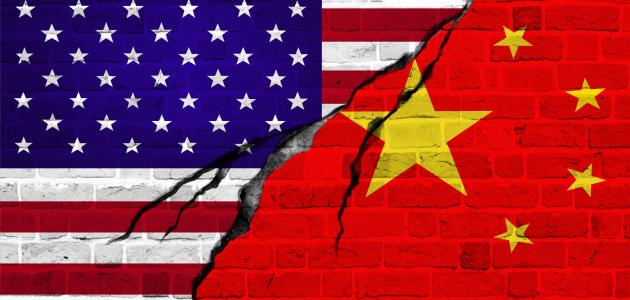Industrial Policy & International Security
U.S. Officials Had a Secret Oil Deal With the Saudis. Or So They Thought. | The New York Times
Earlier this month, oil-producing countries agreed to cut production by two million barrels per day contradicting an assumed agreement between the US and Saudi Arabia to do the opposite. Before President Biden visited Saudi Arabia over the summer, the country fulfilled part of a deal with the US and accelerated a production increase of 400,000 barrels per day to June. Yet, in September, OPEC Plus reversed some of their production increases. Prince Mohammed bin Slaman assured Americans there would be no more cuts. Some US officials believe Saudi Arabia’s pivot could be the result of Russian influence but Saudi Arabia claims a neutral position on the war in Ukraine. Prices could surge in December after the European embargo goes into effect, especially if the OPEC Plus meeting in the same month does not yield an increase to supply.
American businesses must stand with their European counterparts | The Financial Times
President and Chief Executive of the US Chamber of Commerce, Suzanne Clark, argues that the US has an immediate opportunity and responsibility to bolster domestic energy production and transport to support European partners. While Europe is more or less prepared for potential shortages this winter, the economic impacts of the war in Ukraine and energy crisis are likely to continue for years to come. Energy costs in Europe have reached 12 percent of gross domestic product and are driving up costs of nearly all other economic activity. And a recession in Europe will slow growth in the US. Moreover, it is in the United States’ interest to support a strong Europe–our central partner in the rules-based international order. Clark argues for short-term actions like permit reform to “support timely development of new energy infrastructure, from pipelines and critical mineral mining to renewable generation.”
US Regulation
Google Agrees to Compliance Reforms in DOJ Settlement | The Wall Street Journal
In a settlement with the Department of Justice, Google agreed to allow a third-party compliance professional to monitor reforms to its program that handles legal requests including subpoenas and search warrants. This settlement dates back to a 2016 warrant served for foreign-held data related to an investigation of a cryptocurrency exchange that Google failed to turn over and eventually lost during years of litigation. The data was not backed up in the US. An update to the Stored Communications Act clarifies that US warrants and subpoenas do apply to information held abroad. The Department of Justice is committed to enforcing tech companies’ prompt and complete compliance with legal demands. A Google representative stated that reforms to comply with government demands for data will not compromise the company’s commitment to protecting users’ privacy.
Innovation
Ash Carter’s Lasting Legacy | Defense One
Author Matt Spence pays tribute to Secretary Ash Carter’s legacy after his sudden passing this week. Spence, former Deputy Assistant Secretary for Middle East policy and a member of Carter’s 2015 transition team, highlights the former Secretary of Defense’s commitment to strengthening the relationship between Silicon Valley and the Pentagon. Carter personally worked to establish the Defense Innovation Unit and Defense Innovation Board to establish new connections with American innovators and improve the Department’s tools for acquiring the best technologies. Without Carter, venture investors would not have made as big of bets on defense technology players like Palantir, Anduril, Shield.ai, and Rebellion Defense. His legacy is also present in today’s defense priorities: the CHIPs Act, President Biden’s recent Executive Order on Biomanufacturing, and the newly released National Security Strategy.
Cyber
The Fallout From the First Trial of a Corporate Executive for ‘Covering Up’ a Data Breach | Lawfare
Kellen Dwyer analyzes the implications of Joe Sullivan’s guilty verdict earlier this month. Sullivan, Uber’s former Chief Security Officer, is the first company executive to face criminal prosecution over their handling of a data incident. The broad legal theories used against Sullivan blur the line between “covering up” a breach versus declining to report it. At the time of Sullivan’s actions, no requirement to disclose data security incidents to the government existed. Current regulations to this effect have been signed into law but are not likely to be implemented until 2025. In the meantime, Dwyer recommends that the Justice Department rethink the applicability of misprision to data security incidents and define the circumstances under which companies would be prosecuted for declining to report an incident. Without clarification, it’s possible the ruling against Sullivan may have a chilling effect on companies’ willingness to cooperate voluntarily with the Justice Department for fear of opening themselves up to prosecution later.
State & Local Tech Ecosystems
AI’s New Creative Streak Sparks a Silicon Valley Gold Rush | WIRED
Generative AI is the new target of fundraising buzz in Silicon Valley. Startups focused on using AI to generate images and text are starting to take off and technologists anticipate that generative AI will expand to include music, game development, writing assistants, customer service, video editing, and more. Generative AI feels magical, which is what makes it so exciting. But investors say it’s still difficult to turn a generative AI tool into a valuable company; the key to success will be reliability. The OpenAI text-generation algorithm, GPT-3, and image generation tool DALL-E 2 are behind a lot of the hype. Microsoft’s code-writing tool, Copilot, and Jasper’s text-generation tool are both built on top of services from OpenAI. More companies like Stability AI, Everyprompt, and Hugging Face are cashing in on the excitement surrounding this technology. As generative AI matures, companies and regulators must factor security and misinformation concerns into product development.
Democracy Online
Biden admin set to warn about threats to nation’s election infrastructure | Politico
An internal intelligence bulletin indicates that national security officials are set to issue warnings of threats to election security infrastructure as the midterm elections approach. Foreign cyber threats and physical threats across the country will be included in the warnings. There have been increasing reports of people gathering around ballot drop boxes to intimidate voters. John Cohen, former DHS counterterrorism chief, attributes this activity to the false narrative that the 2020 election was stolen. Officials expect that election workers are likely to face harassment online and physical threats. But misinformation and disinformation pose the greatest threat to the midterms. At the same time, FBI Director Christopher Wray emphasized that foreign threats to US elections are a year-round problem, not just during the election cycle.














